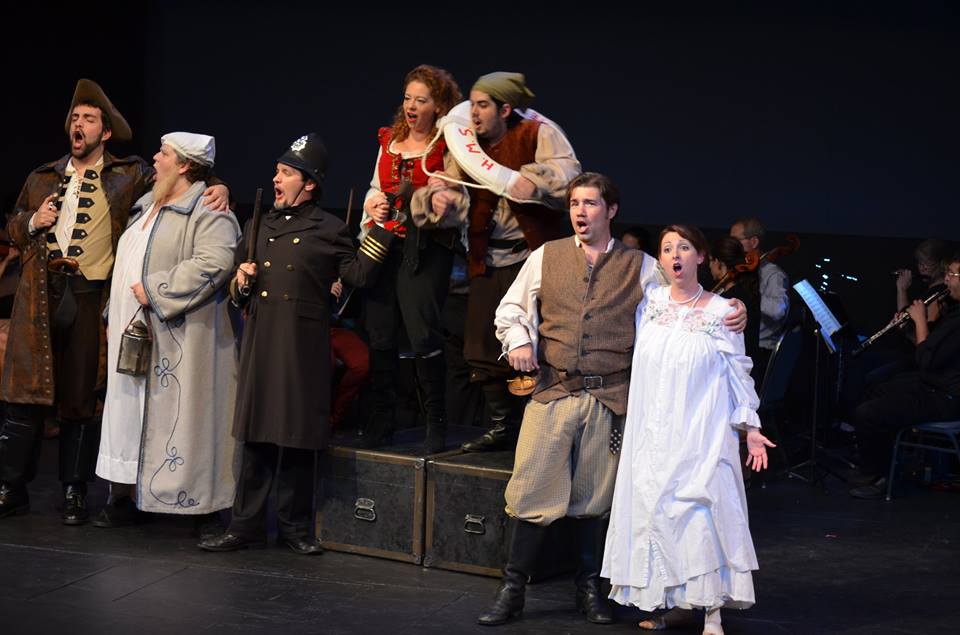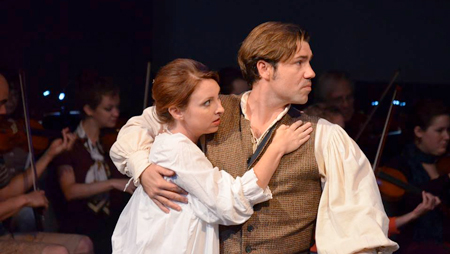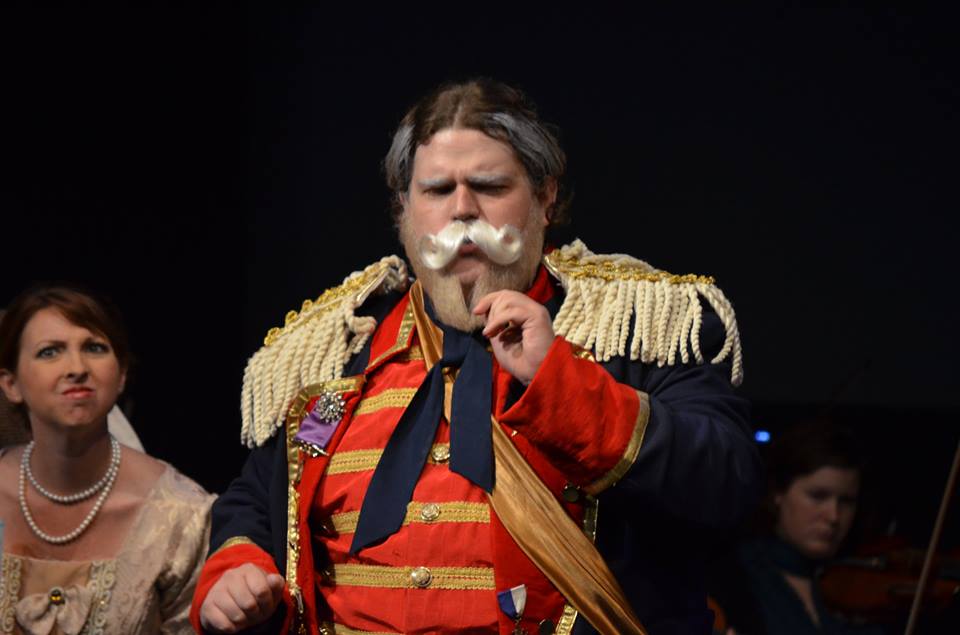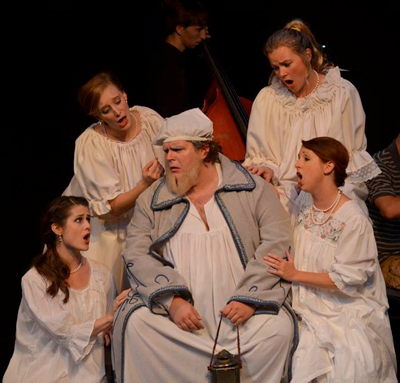by Daniel Hathaway
Gilbert & Sullivan’s “Savoy Operas” most often get performed by amateur theatrical companies, or, if you’re lucky, by professional musical theater troupes. Those productions can be charming and entertaining enough, but when you put such delightful works into the hands of experienced opera singer-actors and a skillful director, something quite extraordinary can happen.
Last weekend, Opera Per Tutti joined forces with the Chagrin Falls Studio Orchestra to present three performances of William Schwenck Gilbert and Arthur Seymour Sullivan’s 1879 operetta, The Pirates of Penzance, that took the work to an entirely new level.
Though described on the program cover as a concert performance, director Scott Skiba mounted a fully-costumed production using a narrow acting area in front of the onstage orchestra, and a series of black boxes and rear-projections of the rocky coast of Cornwall (and of a ruined castle for the second act) to simulate a fully-staged show. The task of making Pirates come alive fell entirely on the shoulders of the cast, who rose both individually and collectively to the challenge of putting flesh on the bones of what can often be cardboard characters.
The casting was superb. Tenor Benjamin Bunsold’s fresh-faced Frederic helped make the ridiculous plot plausible, and he had the perfect partner in soprano Maribeth Crawford, whose Mabel was delightful from her first coloratura entrance. Bass Timothy J. Bruno played the Pirate King with appropriate faux-gruffness, and mezzo-soprano Jennifer Woda, though obviously singing through a bad cold, made a vibrant Ruth.
Bruno’s fellow pirates (Sean Burns — as Samuel, his lieutenant — Robert Pierce, James Hevel, Josue Brizuela, Michael Borden and Jonathan Witmer-Rich) enlivened the stage with their individual personalities, as did the three other Stanley daughters (Lindsey Sandham Leonard, Angela Mitchell and Claire Connelly), who were all vocally splendid but dizzy and silly in distinctive ways.
The policemen (Robert Pierce and Shaun McGrath, led by their mugging sergeant, Benjamin Czarnota) marched among the pirates and sisters with loony officiousness. Skiba’s canny direction and use of space, together with the intimacy of the 200-seat theater, allowed facial expressions and the smallest of gestures to read clearly to the back row.
Though the entrance of Major-General Stanley and his “Modern Major-General” aria is usually conceived as a show-stopper, baritone Zachary Rusk managed to connect his blustering pretend-major character with the rest of the action. And if his wasn’t the fastest delivery of that famous patter song on record, it may have been one of the easiest to understand. Later, in the second act, Skiba’s staging created lovely groupings of Stanley with his daughters.
Steve Eva’s excellent Chagrin Valley Studio Orchestra held the singers in a warm embrace throughout the show. Since the cast weren’t equipped with eyes in the back of their heads, careful attention must have been paid to ensemble cues and cut-offs in rehearsal. Except for one fleeting, full-cast moment at the end of the first act, synchronization between singers and orchestra was remarkable.
Pirates marked the fifth collaboration between Opera Per Tutti and the Chagrin Valley Studio Orchestra. This production was so well-executed that the two organizations should consider taking it on the road. It’s certainly portable enough.
Published on ClevelandClassical.com September 16, 2014.
Click here for a printable copy of this article.








